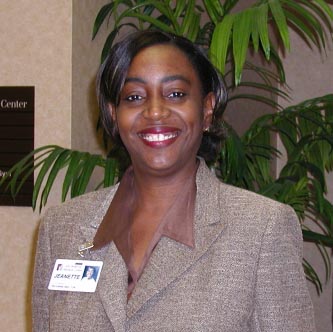Health
Traumatic Brain Injury Can Escape Diagnosis, Cause Variety of Medical Issues
By Jeanette Alexander, Director of Lane Rehabilitation Center
From the battlefield to the football field, traumatic brain injuries are a serious and potentially long-term threat to a fully functioning life. The aftermath of brain injury has been heartbreakingly evident in the continuing recovery of Gabby Giffords, who recently resigned her seat in the U.S. House of Representatives after suffering a gunshot wound to the head a year ago at a constituent meet-and-greet near a Tucson, AZsupermarket.
The former Arizona congresswomen's case is severe, but for many people who suffer from milder brain injuries, both the assault and itseffects are much less obvious.
The American Academy of Neurology defines traumatic brain injury—or TBI –as an acquired medical condition caused by sudden trauma to the brain. Brain trauma can be caused by a violent blow to the head or by an object that pierces the skull and enters the brain tissue. TBIs can be diagnosed as mild, moderate or severe, depending on the extent of brain damage.
"Each year, nearly 1.4 million Americans visit an emergency room due to traumatic brain injuries," says Jeanette Alexander, director of Lane Rehabilitation Center. "Fortunately, most TBI patients are treated and released. About 75 percent of these are considered mild brain injuries, which includes concussions."
Concussions can be difficult to recognize, even by medical professionals as symptoms may not be immediately obvious or severe. Symptoms may show up in less obvious places such as; physical and emotional problems, and disrupted thinking and sleeping. In rare cases, the injury can cause a life-threatening blood clot on the brain, which requires emergency attention. An example of the risk of an untreated concussion is the actress Natasha Richardson, who died in 2009 from a clot that resulted from what seemed to be a minor head bump on a ski slope.
After a bump, blow or jolt to the head or body, the CDC recommends seeking immediate medical attention if any of these symptoms are evident:
· Headache that intensifies or does not go away
· Weakness, numbness or decreased coordination
· Repeated vomiting or nausea
· Slurred or nonsensical speech
· Drowsiness or difficulty awakening
· One pupil — the black part in the middle of the eye — larger than the other
· Convulsions or seizures
· Difficulty recognizing people or places
· Confusion, restlessness or agitation
· Unusual behavior
· Loss of consciousness
· Inconsolable crying in children
· Refusal to nurse or eat in children
About 35 percent of brain injuries are the result of falls, particularly among children and seniors, according to the CDC.Another 17 percent stem from motor vehicle accidents, which also account for the most deaths. Nearly 17 percent of concussions occur when the head is struck by or against another object, and 10 percent of these are from assaults.
While a small number of brain injuries are catastrophic for the victim, almost all can be treated.The initial challenge can be diagnosis of this so-called "invisible injury." Medical imaging tests, (MRI) can detect brain bleeding or obvious physical damage. Other screening tests can assess effects on speech, movement, memory and thought. The brain injury treatment team may include emergency room doctors, neurologists, rehabilitation therapists and psychologists. And since it can require a long recovery process, social workers and case managers often step in to help family and friends deal with a variety of challenging issues.
As research aimed at treating traumatic brain injury continues, those affected will have new hope for recovering and living a full life. The example set by Gabby Giffords has illustrated this promise and stands as an example of advances already made in treating what can be a life-changing condition.
For more information on traumatic brain injury treatment and recovery, please call Jeanette Alexander at Lane Rehabilitation Center, (225) 658-6833.



0 comments